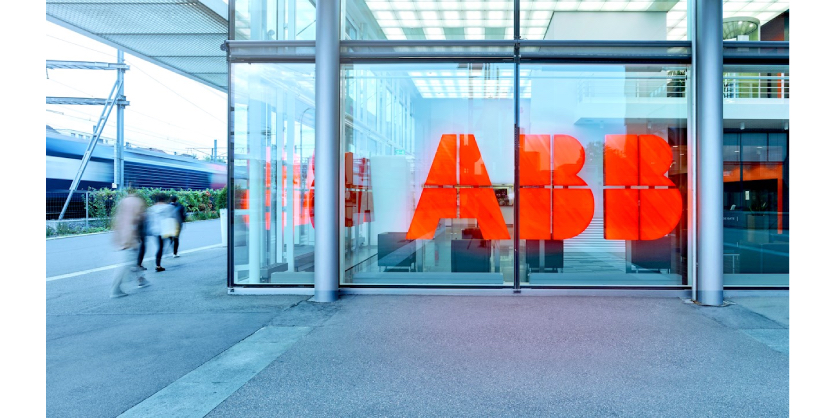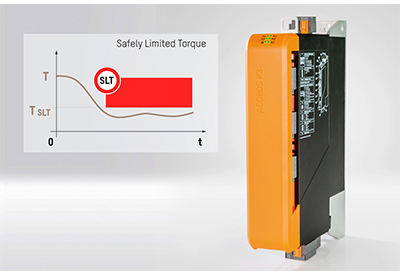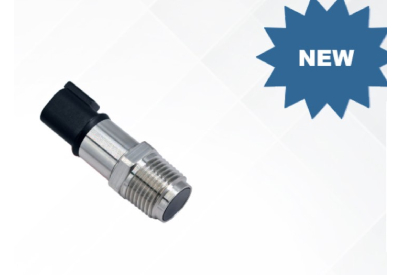ABB Energy Appraisals of Industrial Electric Motors Reveal Potential 2.1 Twh Lifetime Savings
November 23, 2023

From June to September 2023, ABB analyzed more than 2,000 industrial electric motors under its Energy Appraisal service and has identified an average energy saving of 31 percent
• Audits of more than 2000 motor-driven systems found an average energy-saving potential of 31 percent per motor
• Total lifetime energy savings are equivalent to the annual use of 1.25 million average EU households*
• Up to 1.5 million tonnes of CO2 savings and ROI of as little as three months, depending on the regional energy mix and cost
From June to September 2023, ABB analyzed more than 2,000 industrial electric motors under its Energy Appraisal service and has identified an average energy saving of 31 percent. That equates to more than 2.1 terawatt-hours (TWh) of potential energy savings across the 20-year lifetime of these systems. Energy appraisals enable industrial businesses to pinpoint exactly where their biggest energy savings lie across fleets of motor-driven systems.
They overcome the barrier that industrial companies face when deciding where to target investment for the best energy savings and return on investment (ROI). Appraisals work by gathering operational data from motor-driven systems in the field. A service expert compares this with the theoretical performance that could be achieved by adding a variable speed drive (VSD), resizing or modernizing the equipment.
Improving energy efficiency enables businesses to reduce electricity consumption, with impressive CO2 savings and return on investment (ROI) that depend on each country’s energy mix and cost. For example, if all the motors audited were operating in the UAE, a 2.1 TWh energy saving would be equivalent to 1.5 million tonnes of CO2 emissions and an ROI of six months. Alternatively, in Germany this would equate to a saving of 940,000 tonnes CO2 and an ROI of only three months**. These savings would be enough to offset the emissions of a coal plant for 2 months in Germany and 3 months in the UAE.
“With the world debating how to fight climate change at COP28 next week, our results show that it is possible to do the right thing for the planet, as well as for businesses. Thus, finding an average of 31 percent energy savings across 2,000 motors shows that electric motor-driven systems are a great untapped opportunity to accelerate the transition to a low-carbon society,” says Erich Labuda, president of ABB’s Motion Services business.
Erich Labuda, president of ABB’s Motion Services business
With more than 300 million industrial electric motors in the world, the results show great potential to save energy and CO2 emissions, especially since more than half of these are at least 20 years old and have been superseded by modern high-efficiency technology.
The motors audited serve multiple industries, including food and beverage, chemical processing, energy, and HVAC (heating, ventilation, and air conditioning). They cover a range of low and medium voltage motor applications, such as pumps, fans and other systems. The appraisals found consistent patterns in performance between different motor-driven applications, with fans typically offering the biggest energy savings. Further analysis also identified that the biggest opportunities are related to motors operating without a VSD. VSDs control the speed or torque of motors to precisely match the output with the demand, which reduces energy consumption.
These findings support “The Case for Industrial Energy Efficiency” recently published by the Energy Efficiency Movement. This report aims to give corporate leaders key insights into ten measures that rely on mature technologies, have a meaningful impact on costs and emissions and can be deployed quickly without complex or expensive projects.
* EU average (~1670 kWh/year)
** The ROIs are calculated at the current energy prices
ABB (ABBN: SIX Swiss Ex) is a technology leader in electrification and automation, enabling a more sustainable and resource-efficient future. The company’s solutions connect engineering know-how and software to optimize how things are manufactured, moved, powered and operated. Building on more than 140 years of excellence, ABB’s ~105,000 employees are committed to driving innovations that accelerate industrial transformation.
ABB Motion keeps the world turning – while saving energy every day. We innovate and push the boundaries of technology to enable the low-carbon future for customers, industries and societies. With our digitally enabled drives, motors and services our customers and partners achieve better performance, safety and reliability. We offer a combination of domain expertise and technology to deliver the optimum drive and motor solution for a wide range of applications in all industrial segments.Through our global presence we are always close to serve our customers. Building on over 140 years of cumulative experience in electric powertrains, we learn and improve every day. www.abb.com
More Information
Learn more about ABB’s Energy Appraisal.
Related Story
ABB Contributes to New Report Showing How Industry Can Reduce Global Carbon Emissions By 11% By 2030 While Saving $437 Billion Annually
As industry is facing the unprecedented challenge to meet global decarbonization targets while addressing growing demand, a new report from the Energy Efficiency Movement (EEM) demonstrates how businesses can start acting immediately. The EEM is a global forum founded by ABB, and now consisting of more than 400 organizations, that shares ideas, best practices and commitments to create a more energy-efficient world.
Published on October 24, 2023, “The Case for Industrial Energy Efficiency” aims to give corporate leaders key insights into 10 measures that rely on mature technologies, have a meaningful impact on costs and emissions and can be deployed quickly without complex or expensive projects. Building on the “Industrial Energy Efficiency Playbook,” published in 2022 by the EEM, the new guide helps corporations address one of the biggest barriers to energy efficiency: building their own business cases







